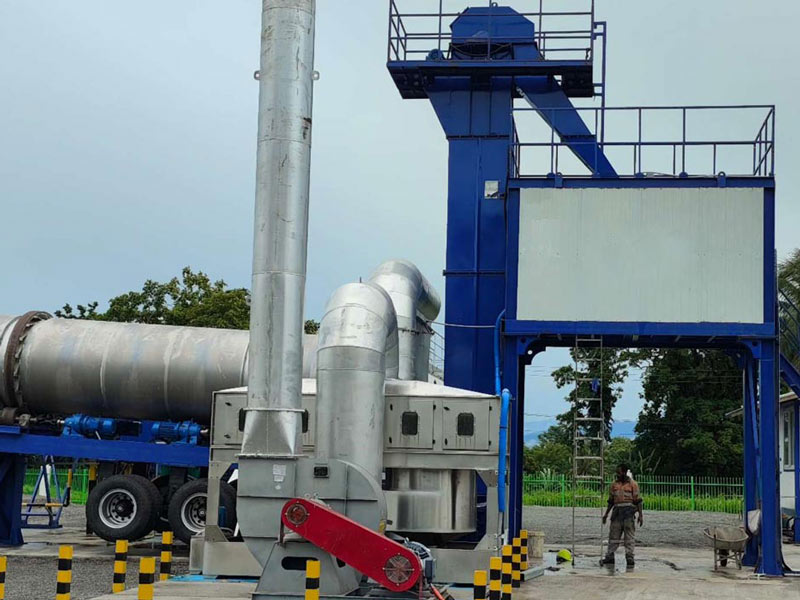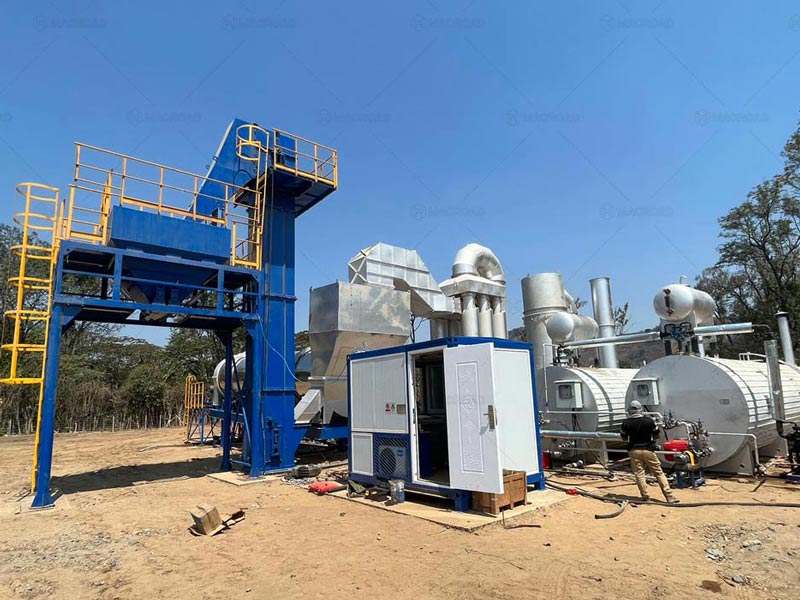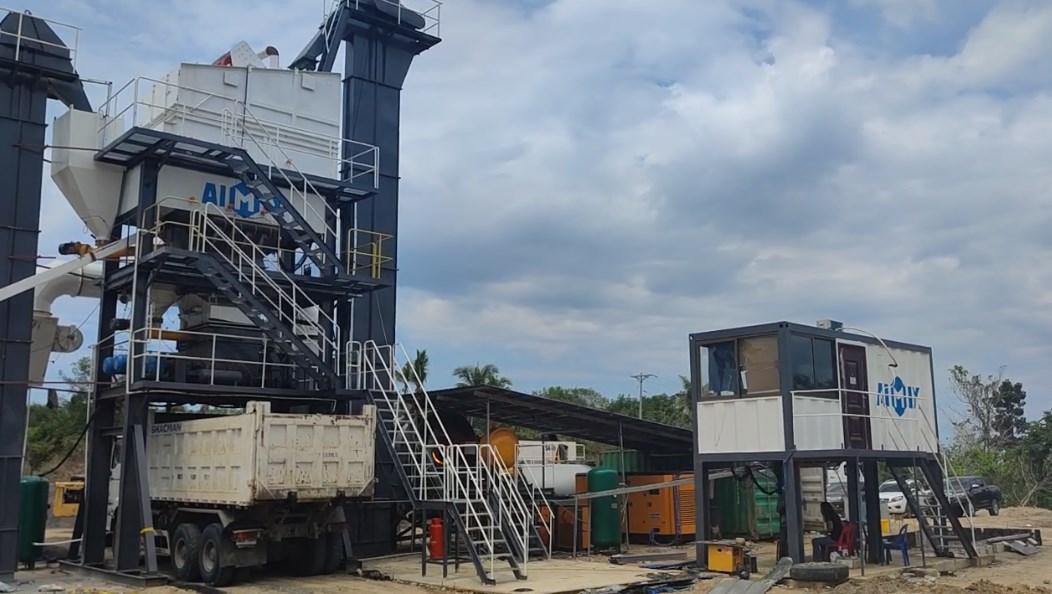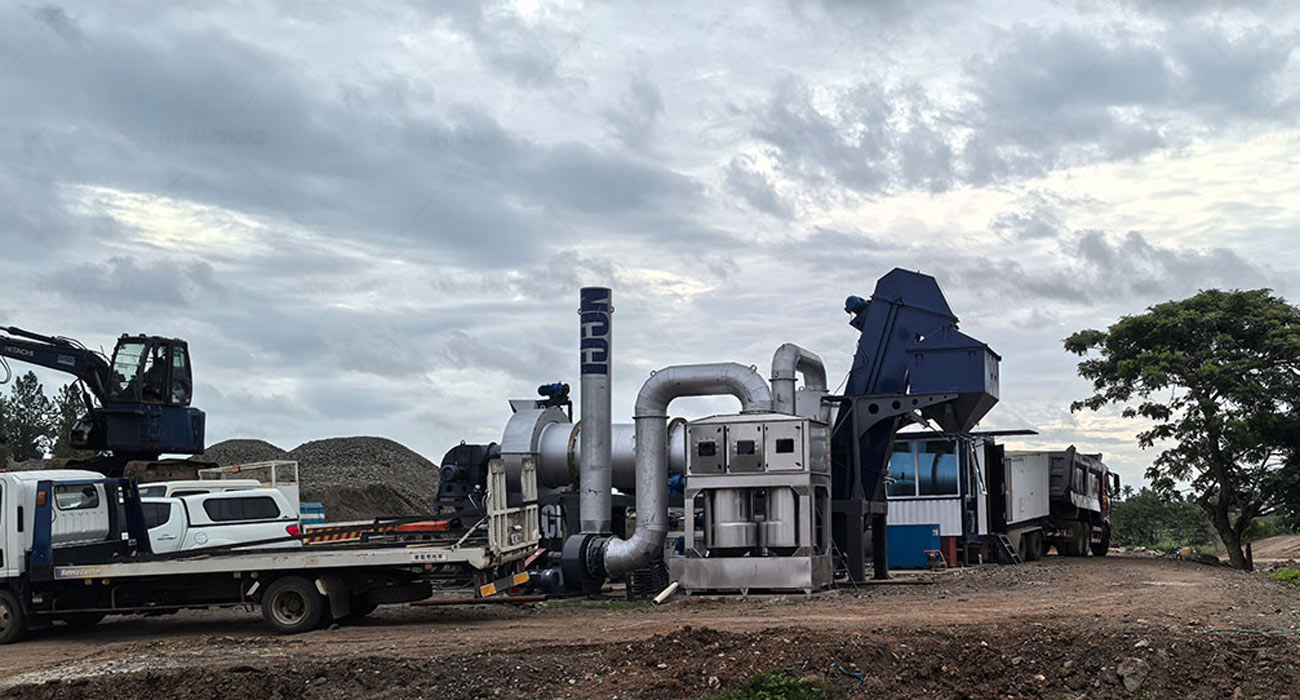Rural road construction typically involves small-batch and decentralized approaches, often constrained by limited budgets. When considering the purchase of portable asphalt plants for sale and mini asphalt mixing plants, it is essential to evaluate the adaptability of the equipment to meet the specific construction characteristics of rural projects. Factors such as quick disassembly and assembly capabilities, as well as the ability to utilize local low-grade aggregates, play a critical role in ensuring the success of road construction efforts. This article explores how to make informed decisions to avoid excessive costs and ensure high-quality construction.

Assessing Equipment Adaptability for Rural Projects
The adaptability of asphalt equipment is crucial in rural road construction, where sites are often narrow and the transportation radius for raw materials is short. When evaluating portable asphalt plants for sale, customers should consider whether the equipment can be quickly disassembled and assembled. This feature is vital for projects that may require frequent relocation or adjustments based on site conditions.
Additionally, the ability to adapt to local low-grade aggregates is essential for ensuring quality asphalt mixtures. Many rural areas may not have access to high-quality materials, making it important for the equipment to effectively handle and process available resources. By prioritizing these adaptability features, construction teams can avoid the pitfalls of oversized equipment that leads to unnecessary costs or inadequate performance that compromises road quality.

Understanding the Role of Drum Mix Plants
Drum mix plants are particularly suitable for rural road construction due to their continuous production process. These plants provide a stable supply of basic asphalt mixtures required for building and maintaining rural roads. Their efficiency in producing large batches of asphalt makes them an ideal choice for main road construction, where consistent quality and volume are essential.
By employing a drum mix plant, construction teams can ensure that they have sufficient material to support larger projects without the delays often associated with smaller batch production. This approach helps streamline operations, reducing downtime and ensuring that projects stay on schedule.

Leveraging Mini Asphalt Mixing Plants for Small-Batch Needs
In contrast, mini asphalt mixing plants focus on precise batch-type production, making them well-suited for the small-batch needs of rural road repairs. These plants allow for flexibility in responding to localized demands, such as patching or maintaining village roads.
By utilizing mini asphalt mixing plants, construction teams can efficiently handle smaller quantities of asphalt while maintaining high quality. This adaptability is particularly important in rural settings, where project scales can vary widely and immediate needs may arise unexpectedly. The combination of mini plants and drum mix plants allows for a comprehensive approach to rural road construction that addresses both large and small-scale requirements.

Planning Collaborative Use to Maximize Efficiency
To optimize equipment utilization and minimize costs in rural road construction, it is essential to plan a collaborative use mode between drum mix plants and mini asphalt mixing plants. For instance, the drum mix plant can be employed to supply large batches for main road construction, while the mini mixing plant can address the smaller, immediate needs for village road repairs.
This collaborative approach not only enhances efficiency but also helps control equipment idleness rates and operating costs. By ensuring that both types of equipment are utilized according to their strengths, construction teams can avoid inefficiencies that arise from relying solely on one type of equipment.
Effective planning allows for seamless transitions between different project requirements, ensuring that resources are allocated where they are most needed without wasting time or materials.
Conclusion: Making Informed Equipment Choices for Rural Roads
In conclusion, optimizing equipment choices for rural road construction involves careful consideration of the adaptability and capabilities of both drum mix plants and mini asphalt mixing plants. By assessing the specific needs of projects and planning for collaborative use, construction teams can effectively manage their resources and ensure high-quality outcomes.
The integration of portable asphalt plants for sale into this strategy further enhances flexibility and responsiveness to varying project demands. Ultimately, this approach not only supports efficient construction practices but also contributes to the long-term sustainability and quality of rural roads.
